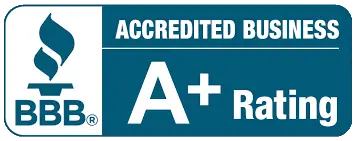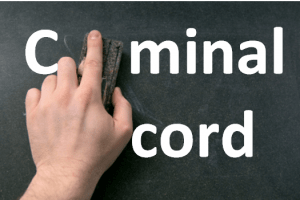How to obtain a Criminal Record Suspension
(Previously Called a Canadian Pardon)
Please check out the Criminal Record Suspension topics below or scroll through this web page for all of your answers.
- What is a Record Suspension?
- Why should I apply for a Record Suspension?
- When can I apply for a Record Suspension?
- Why should I start my application early?
- Summary, Indictable, and Hybrid Offences.
- Criminal Offence Penalty Chart
- Are any offenses ineligible?
- Will my application be granted?
- What is a measurable benefit?
- Six ways to show how a Record Suspension will sustain my rehabilitation into Society
- Refusals and Good Conduct Criteria
- Revocation of Pardons or Record Suspensions
- How long will it take my application to be granted?
- Can I get an emergency or early Record Suspension?
- What will a criminal record search reveal once suspended?
- Can my Pardoned or Suspended Record be revealed without my consent?
- How do I apply for a Record Suspension?
- Special Topics
- Fees and Disbursements
What is a Record Suspension?
- keeps your criminal record separate and apart from other criminal records;
- is evidence that your conviction(s) should no longer reflect upon your character; and
- reduces the risk of discrimination resulting from having a criminal record.
A Record Suspension reduces discrimination in many areas of your life, but may not eliminate all discrimination. Please check out all of the specific topics below. If you want immediate assistance, CLICK THE BUTTON PROVIDED.
[TBS_BUTTON color=”info” style=”text-decoration:none; color: white; margin: 0 auto; width: 100%;” link=”/contact-us”]Free Consultation 1-800-320-2477 (Calgary: 403-229-2774)[/TBS_BUTTON]
NOTICE: As a result of Bill-C10, the Record Suspension replaced the Canada Pardon on March 13, 2012. Eligibility rules and procedures have changed.
Why Should I Apply for a Record Suspension?
A Record Suspension is proof that a criminal record should no longer reflect upon your character. It reduces the risk of discrimination involving:
- Adoption
- Bonding
- Certification
- Commissioner for Oaths Appointment
- Driving (reduces the risk of greater scrutiny from random road-side police checks)
- Employment – New or Current (ie. job promotion, new owners, new company policy regarding screening, downsizing)
- Educational Program (enrollment and completion of required practicum)
- Fostering
- Immigration to Canada – Landed Immigrant or Permanent Residency
- Immigration to Canada – Canadian Citizenship
- Immigration to a Foreign Country
- Licencing
- Notary Public Appointment
- Obtaining a Liquor Licence
- Owning a Care Facility (Child Care, Elderly Care, or Dependent Adult Care)
- Peace of Mind
- Purchasing a Franchise
- Rental Agreements
- Sitting on a Board of Directors
- Temporary Work or Study Visa (Canada)
- Temporary Work or Study Visa (Foreign)
- Travel
- Visiting Canada (for non-Canadians with Canadian criminal records)
- Volunteering
- Wandering eyes—non-pardoned court records are accessible by the public
When Can I Apply for a Record Suspension?
Start 6 Months Early
You can apply for a Record Suspension once you have met all waiting periods for all convictions, you are not under investigation, no charges are pending or outstanding, and there is no warrant out for your arrest. It is advisable that you start your application at least 6 months before eligibility.
Could I Start One or Two Years Early?
Even if you are not eligible for a few years, and especially in cases where you have had several convictions, it is advisable to start a “partial Record Suspension” early wherein we help you order your RCMP record and all court documents pertaining to convictions where fines, restitution, and victim fine surcharges were ordered. Often we find unpaid fines clients forgot about or thought they paid, or perhaps they only partially paid it. Clients must then pay their outstanding fine, then wait the 5 or 10 year waiting period from the date full payment has been made before getting a Record Suspension. The PBC does not ordinarily accept an explanation of “I thought it was paid” or “the courts did not advise me correctly that it was owing”. It is their general practice to make you pay it and then wait the required waiting period.
We’ve also had courts insist a fine was not paid, and only after a few months of thorough investigation and persistence was it proven that the fine was paid. Therefore, it pays to start your application early just in case.
If you are under investigation, charges are pending or outstanding, or there is a warrant out for your arrest even if due to ‘wrong place at wrong time’ or ‘complete misunderstanding’ or ‘civil matter such as a parking ticket’, it is possible you may still be able to start your Record Suspension application right away. In this case, we recommend you contact our office to discuss your situation so that we can assess the possibility of how these unresolved issues will affect your application in the future.
Waiting Periods
You can apply for a Record Suspension after you have met the following waiting periods:
- 5 years for a summary offence (or a service offence under the National Defence Act).
- 10 years for an indictable offence (or a service offence under the National Defence Act for which you were fined more than $5,000, detained, or imprisoned for more than 6 months).
- See below for offences for which you CANNOT apply for Record Suspension.
The date that you satisfied your sentence is the date that you paid your fine, victim fine surcharge, restitution, probation, incarceration, compensation order, or community service. If you were given a 2-year probationary period, the date that you satisfied your sentence is the last day of your 2-year probationary period—not the date that you were discharged from probation. The same applies to incarceration—it is the last day of the full sentence regardless of your release date. If you are given ‘time to pay’ a large fine or restitution order, pay it immediately or at the earliest opportunity!
Suspension of a driver’s licence and/or ban on possessing a firearm for a given period of time are not used in the calculation of waiting periods. This means you may be eligible to apply for a Record Suspension even if you are still prohibited from obtaining a Driver’s Licence or possessing a firearm. However, a Record Suspension does not guarantee a return of your driver’s licence nor does it result in the cancellation of any ban you may have received in possessing or owning a gun.
Summary, Indictable, and Hybrid Offences
Minor convictions are always tried summarily (summary offences) and include:
- causing a disturbance;
- indecent act;
- possession of marijuana up to 30 gms.
The most serious of convictions are always tried by indictment (indictable offences) and include:
- break and enter into a dwelling house;
- sexual assault with a weapon;
- aggravated assault;
- theft from an employer;
- drug trafficking or cultivation.
A hybrid offence is deemed an indictable offence, unless the Crown elects to treat it as a summary offence or if no election is made in summary (Provincial) court and includes:
- theft under;
- impaired driving;
- sexual assault
That means, a hybrid offence can be either summary or indictable. The only way to know if a hybrid offence was tried summarily or if no election was made in summary (Provincial Court) is to look at the court documents. You will need to know the following to determine Record Suspension eligibility:
- whether your conviction(s) were tried summarily or by indictment; and
- dates all fines, VFS, and restitution were all paid.
Your file will be processed faster if you prove all offences were tried summarily. Sometimes you can tell an offence was tried by indictment by the sentence given. If the courts are unable to retrieve your court document (e.g. misfiled, destroyed by flood as has happened in a few court houses in the prairie provinces, or purged due to court house purge policy), then by default it is deemed an indictable offence.
A review of your criminal record will not disclose whether your hybrid offence was tried summarily or by indictment. To determine whether your conviction is summary or indictable, you will need to refer to your Court Document or you may contact our office at: 1-800-320-2477 (toll free in Canada) or 403-229-2774 (local to Calgary or outside Canada) for your free consultation. You may also check out the following chart:
[TBS_BUTTON color=”info” style=”text-decoration:none; color: white; margin: 0 auto; width: 100%;” link=”/criminal-offence-penalty-chart”]View Criminal Offence Penalty Chart[/TBS_BUTTON]
[TBS_ALERT class=”alert-block” color=”warning” heading=”Caution”]There are some offences that are currently hybrid, but years ago were always indictable, such as old theft and break and enter convictions (related to non-dwelling house). Theft under convictions as well as break and enter (into a non-dwelling house) are currently hybrid offences. This Chart may not reflect your particular conviction at the time that it occurred.[/TBS_ALERT]
NOTE: if there is no election to try a hybrid offence as a summary offence in Provincial court, it may be deemed to have been tried summarily. Please contact us if the courts refuse to deem your offence summary in Provincial Court if no election has been made.
Are Any Offenses Ineligible?
Yes. You cannot apply for Record Suspension if you have been convicted of:
- a Schedule 1 Offence (sexual offence involving a child) under the Criminal Records Act (there are exceptions);
- common assault or assault with intent to commit an indictable offence against a child committed before January 4, 1983; or
- more than three (3) offences for which each offence:
- was prosecuted by indictment or is a service offence;
- is subject to a maximum punishment of imprisonment for life; and
- a sentence to imprisonment for two (2) years or more was imposed.
Will my Application be Granted?
Your Record Suspension may not be granted if:
- you fail to meet the good conduct criteria;
- you do not demonstrate how a Record Suspension will provide you with a measurable benefit;
- the Administration of Justice would be brought into disrepute if a Record Suspension were granted; or
- you fail to demonstrate how a Record Suspension will sustain your rehabilitation into society as a law-abiding citizen.
Record Suspension Refusals & Good Conduct
Your Record Suspension will be denied if charges are pending, you are under investigation, or you are not eligible to apply. You may fail to meet the good conduct criteria if, since last convicted, you:
- have been under criminal investigation (even if found not guilty or charges were withdrawn, dismissed, or stayed);
- entered into a peace bond;
- received a conditional or absolute discharge;
- were drunk and disorderly in a public place;
- have overdue fines related to non-criminal matters;
- were convicted of a provincial or municipal offence;
- have a suspended Driver’s Licence (usually due to unpaid fine);
- harassed someone with telephone calls;
- were known by the police to be associating with gangs, criminals, or terrorist groups; or
- were involved in any situation where police intervention was required.
However, if the PBC proposes to deny your Record Suspension application for any reason, you will be advised of the proposal, following which you will be given an opportunity to respond in writing to the PBC. The Board will consider your written representations before making a final decision on your file. If your Record Suspension Application is refused, you will be able to re-apply one year after the date of the decision. NOTE: even if one of the above incidences did happen, your Record Suspension may still be granted.
What is a Measurable Benefit?
According to the PBC, examples of how a Record Suspension provides the applicant with a measurable benefit include:
- obtaining employment or education;
- obtaining a residence or an improvement of applicant’s living conditions;
- removing stigma/changing others perceptions;
- social and/or personal improvement; and
- financial stability.
Six Ways to Show How a Record Suspension will Sustain Your Rehabilitation into Society
I find the wording of this criteria objectionable. To me, it presumes you would not be able to sustain yourself in society as a law-abiding citizen unless given a Record Suspension. Then it goes on to indicate that you must demonstrate how you have rehabilitated. I accept the examples they give, I just reject the idea that is implied that all of my clients require a Record Suspension in order to remain law-abiding. Their examples include:
- making a positive contribution to society;
- having a lifestyle that is no longer associated with criminal behaviour;
- taking responsibility for offences and sentences;
- taking steps to ensure there is no risk of recidivism;
- identifying a support system; and
- identifying pro-social relationships and social networks.
Revocation of Pardons or Record Suspensions
A Pardon or Record Suspension may be revoked if an individual re-offends, the PBC issued a Pardon or Record Suspension in error (ie. over-sight) or due to misrepresentation or accidental error by the applicant. How could an error be accidentally made? The client may have had multiple convictions, some of which the arresting police force for one reason or another did not register on the National Database. Not realizing a conviction was missing from the RCMP record, it could have accidentally been omitted from the Record Suspension Application, following which a Record Suspension is granted. We had this happen to a client once. One day he decided to take a look at his Pardon, recalled the offence and called us about it. We did some investigating and sure enough, it was missed (it would be impossible and impractical for us to check every police department in Canada–we have to rely on our client to let us know where they may have been convicted). We obtained the court document and realized that due to late payment of fine, he was not eligible for a Pardon when it was granted. This resulted in the revocation of his Pardon and we had to start all over again.
Not all Pardons/Record Suspensions are revoked if a person re-offends. For example, if you were pardoned for a theft conviction 30 years ago, then re-offend with something like an impaired conviction, the PBC may choose not to revoke your Pardon or Record Suspension because the two offences are unrelated and the new conviction is a summary offence. Or, if your very old minor pardoned or suspended conviction was purged prior to the new offence, then it would be impossible for a Pardon or Record Suspension to be revoked. Typically, your Pardon or Record Suspension would automatically be revoked if you are convicted of a new indictable offence and may be revoked if you are convicted of a new summary offence.
How Long Will it Take my Record Suspension Application to be Processed?
Regular Application
Prior to submitting your Record Suspension application to the PBC, it can take an average of 3 to 6 months to prepare your application and obtain all of your supporting documents. It all depends on how quickly the RCMP process your fingerprints, backlogs of the local police where you have resided in the past 5 years, backlogs at the court house(s) you were convicted in, age of convictions, and whether your criminal record matches your court documents. For example in 2015, RCMP took an average of 3 to 6 weeks to provide us with an RCMP criminal record, but in 2016 this time ballooned to 4 to 6 months. Police and court reports can take as few as 2 weeks for some locations and as many as 4 months for others. Police and Court Reports can’t be obtained (most of the time) until your RCMP record has been received.
How long will it take for the Parole Board to process your Record Suspension application once they receive it? When the new Record Suspension Rules came out, the PBC advised “they were legislated” to complete Applications with only summary offences “within 6 months” and Applications with indictable offences “within 12 months”. However, within 18 months of the new rules taking effect on February 22, 2012, they are already advising that “it could take longer”, which suggests to me that the legislation is being interpreted more flexibly.
Emergency Pardons or Record Suspensions
EFFECTIVE SEPTEMBER 2011 THE PAROLE BOARD OF CANADA NO LONGER PROCESSES REQUESTS FOR RECORD SUSPENSIONS AND PARDONS ON AN EMERGENCY BASIS. THE RCMP HAS NOT ACCEPTED REQUESTS TO RUSH THE ORDERING OF RCMP RECORDS FOR MANY YEARS.
Be very cautious when dealing with companies giving false promises that your file can be expedited, rushed, or fast-tracked. The only part that may be sped up is the 2 week to 4 month period wherein court documents and local police checks are ordered. However, there are also many courts and police departments that will NOT expedite requests (many locations are faced with back logs and budget constraints which make it impossible for them to consider emergency requests or a request to put your file ahead of someone else’s).
In an emergency situation, we automatically rush the ordering of court documents(s) and police check(s) (provided they permit it–you only pay for extra courier costs that may arise).
Early Pardons or Record Suspensions (Royal Prerogative of Mercy ‘ RPM’)
In the words of the Parole Board, “the loss of opportunity is a natural consequence of having a criminal record.” The ability to apply for and receive an early Record Suspension before you are eligible is rare and does not apply to people who are suffering ‘natural consequences’. This section does not qualify for individuals who are prohibited from having their record suspended. For more information on RPM, please contact our office.
What Will a Criminal Record Search Reveal Once a Record Suspension Has Been Granted?
- Once suspended, your criminal record becomes sealed. It is not erased, purged, or expunged—though in some cases old records for which a record has been suspended or pardoned may be purged.
- The search will not disclose the fact that you have had a criminal record or have been granted a Record Suspension unless you apply for a position that requires the disclosure of a suspended record (see #6 Limitations). Otherwise, it will appear as though you have never been convicted as the search will reveal “no record”.
- Most employers do not ask individuals to disclose a pardoned or suspended record unless you are applying for a position involving the vulnerable sector.
Can my Pardoned or Suspended File be Disclosed Without my Consent?
According to the Parole Board of Canada:
All information pertaining to convictions will be taken out of the Canadian Police Information Centre (CPIC) and may not be disclosed without permission from the Minister of Public Safety Canada. The CRA applies only to records kept within federal departments and agencies. However, many of the provincial and municipal law enforcement agencies cooperate by restricting access to their records once notified that a Record Suspension has been granted or issued.
The Canadian Human Rights Act forbids discrimination based on a record suspended conviction. This includes services a person needs or the opportunity to work for a federal agency. The CRA states that no employment application form within the federal public service may ask any question that would require an applicant to disclose a conviction. This also applies to a Crown corporation, the Canadian Forces, or any business within the federal authority.
You may personally request the release of pardoned or suspended information, for example, if you are applying for a U.S. Waiver and are required by law to disclose the same.
How do I Apply for a Record Suspension?
General Procedures
We assist individuals across Canada with: (a) the RCMP Criminal Record Search—digital or ink; (b) ordering of Court Documents, Military Conduct Sheet and Requests for Local Police Checks; (c) preparation and submission of the Record Suspension Application and supporting documents to the PBC’s Pardon Unit; (d) issues regarding good conduct criteria and measurable benefit; and (e) emergency applications (PBC is not granting emergencies at this time…however, will endeavor to get your Record Suspension application to the PBC at the earliest opportunity via courier services with regards to all requests). Our applicants also receive the following FREE SERVICES:
- U.S. Admissibility Review. If upon review of your criminal record and relevant court documents we determine you to be admissible to the United States, we will give you a letter confirming the same—which you carry with you on your travel to avoid the risk of refusal.
- Purging of Conditional Discharges.
- We help challenge PBC proposals to deny a Record Suspension application, if it occurs.
- Amending incorrect information on RCMP criminal records.
Free Consultation Phone:
1-800-320-2477 (Toll Free)
Phone: 403-229-2774 (Calgary)
You may telephone us for a free consultation. Should you wish to proceed with an Application for Record Suspension, all you need to do is telephone us for an appointment or telephone interview (if you are unable to attend our office).
Fees and Disbursements
For a complete guide to our pricing, please click the following button:
[TBS_BUTTON color=”info” style=”text-decoration:none; color: white; margin: 0 auto; width: 100%;” link=”/record-suspensions/fees-and-disbursements”]Fees and Disbursements[/TBS_BUTTON]
- Parole Board Application Processing Times
- RCMP Processing Times
- Tips on How to Plead a Criminal Case
- What are the limitations of a Record Suspension?
- Must I disclose my suspended record to an employer? Should I disclose to a foreign country
- Conditional & Absolute Discharges & Automatic Purging of your Criminal Record
- Traveling Outside Canada with a Record Suspension
- US Waiver of Inadmissibility
- Traveling to other foreign countries with a criminal record
- Can I obtain a passport?
This Article does NOT Constitute Legal Advice





